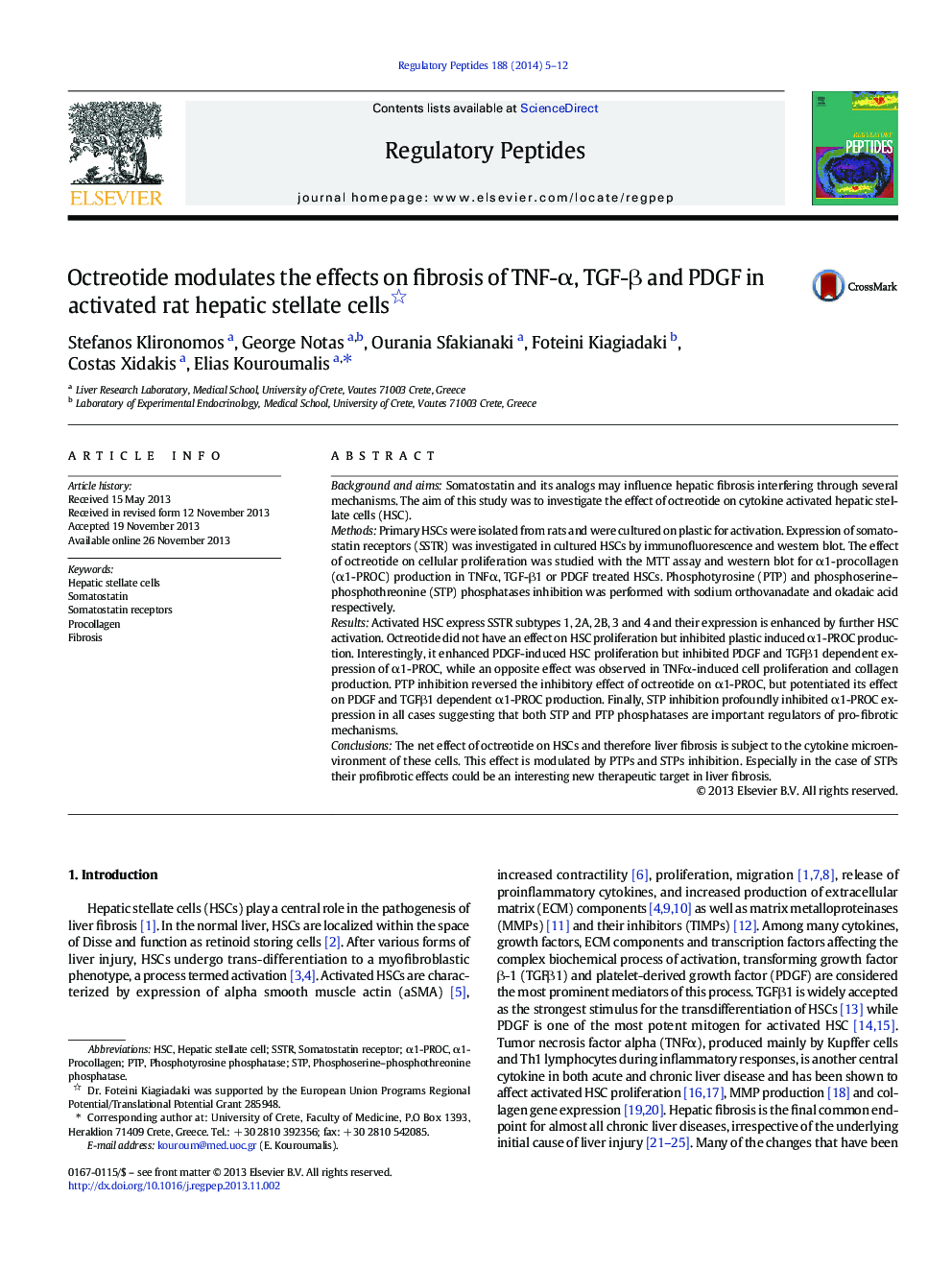| Article ID | Journal | Published Year | Pages | File Type |
|---|---|---|---|---|
| 2022418 | Regulatory Peptides | 2014 | 8 Pages |
•Activated HSC express SSTR subtypes 1, 2A, 2B, 3 and 4.•Octreotide inhibits α1-procollagen production in HSCs.•Octreotide modifies TNFα, PDGF and TGFβ1 dependent effects on HSCs α1-procollagen production.•Serine threonine phosphatases might have profibrotic effects that could be a new therapeutic target in liver fibrosis.
Background and aimsSomatostatin and its analogs may influence hepatic fibrosis interfering through several mechanisms. The aim of this study was to investigate the effect of octreotide on cytokine activated hepatic stellate cells (HSC).MethodsPrimary HSCs were isolated from rats and were cultured on plastic for activation. Expression of somatostatin receptors (SSTR) was investigated in cultured HSCs by immunofluorescence and western blot. The effect of octreotide on cellular proliferation was studied with the MTT assay and western blot for α1-procollagen (α1-PROC) production in TNFα, TGF-β1 or PDGF treated HSCs. Phosphotyrosine (PTP) and phosphoserine–phosphothreonine (STP) phosphatases inhibition was performed with sodium orthovanadate and okadaic acid respectively.ResultsActivated HSC express SSTR subtypes 1, 2A, 2B, 3 and 4 and their expression is enhanced by further HSC activation. Octreotide did not have an effect on HSC proliferation but inhibited plastic induced α1-PROC production. Interestingly, it enhanced PDGF-induced HSC proliferation but inhibited PDGF and TGFβ1 dependent expression of α1-PROC, while an opposite effect was observed in TNFα-induced cell proliferation and collagen production. PTP inhibition reversed the inhibitory effect of octreotide on α1-PROC, but potentiated its effect on PDGF and TGFβ1 dependent α1-PROC production. Finally, STP inhibition profoundly inhibited α1-PROC expression in all cases suggesting that both STP and PTP phosphatases are important regulators of pro-fibrotic mechanisms.ConclusionsThe net effect of octreotide on HSCs and therefore liver fibrosis is subject to the cytokine microenvironment of these cells. This effect is modulated by PTPs and STPs inhibition. Especially in the case of STPs their profibrotic effects could be an interesting new therapeutic target in liver fibrosis.
